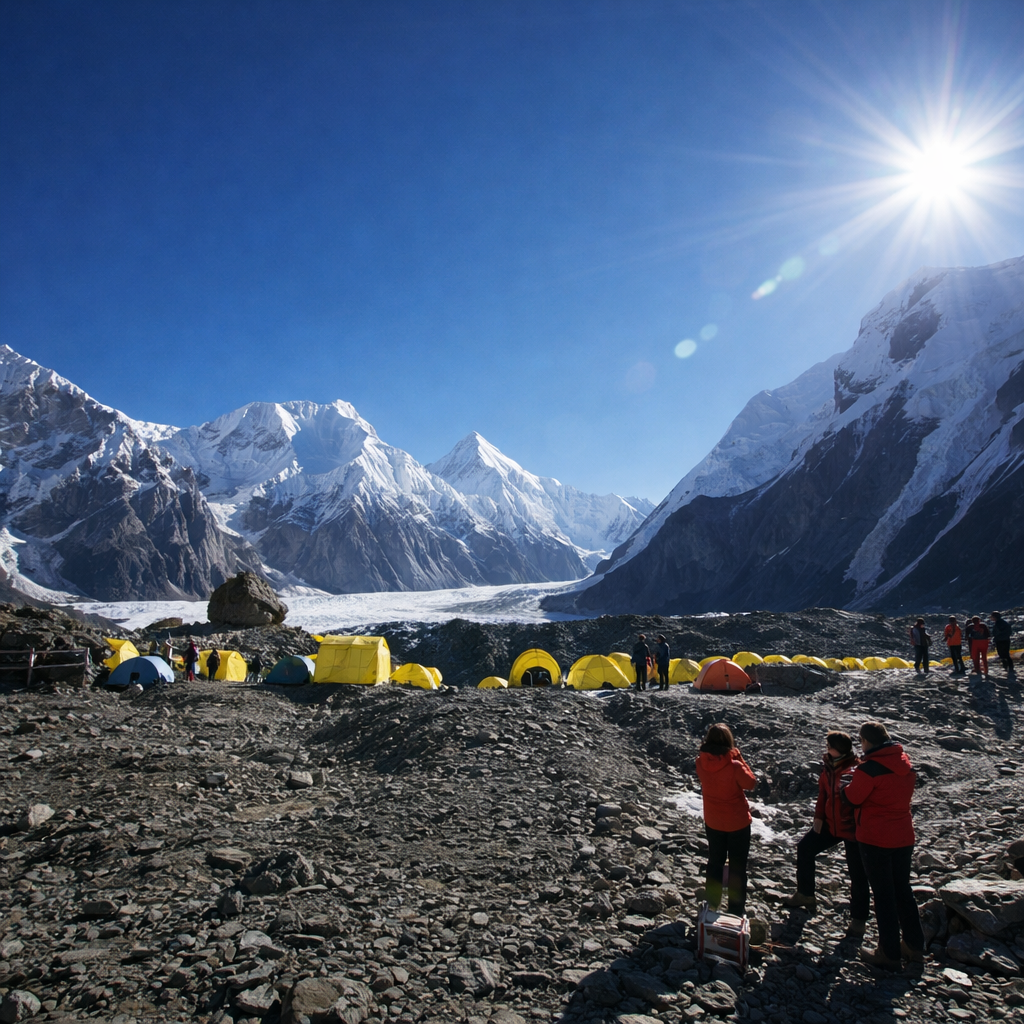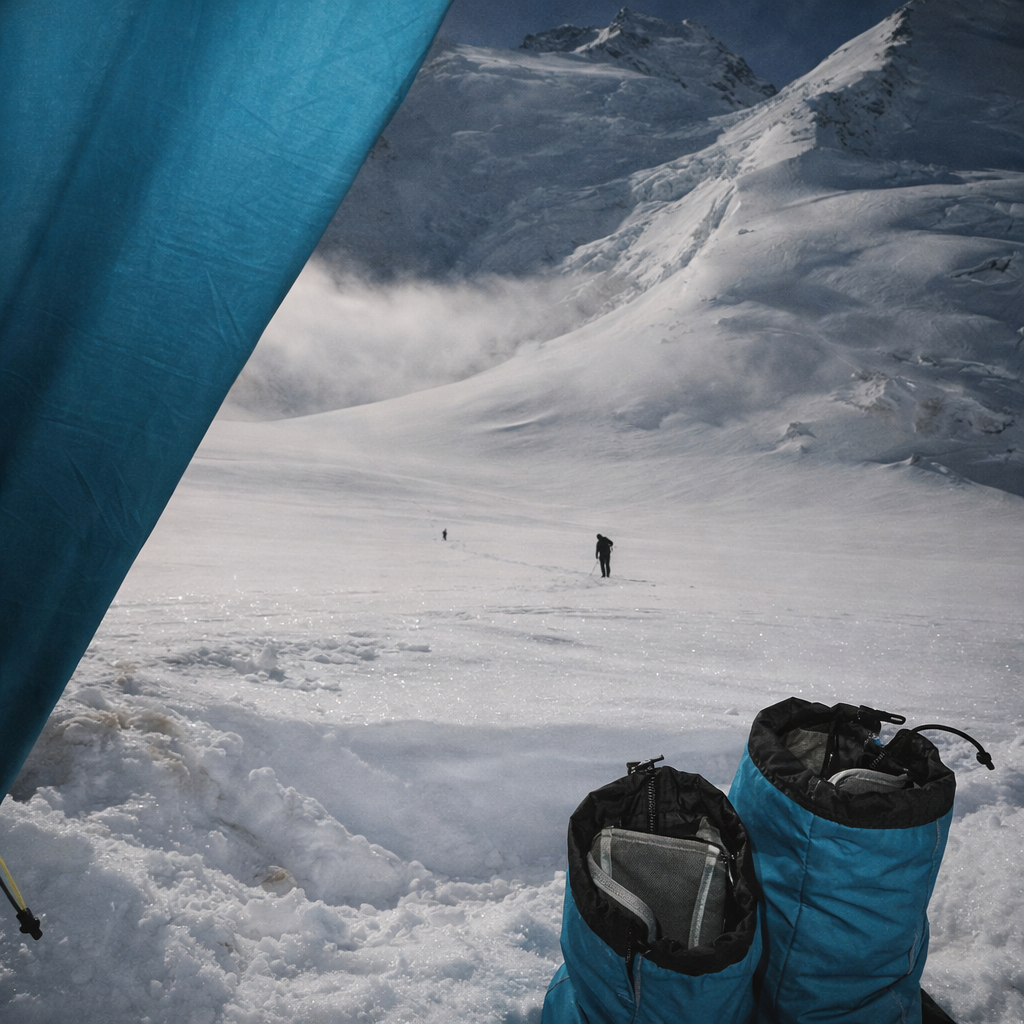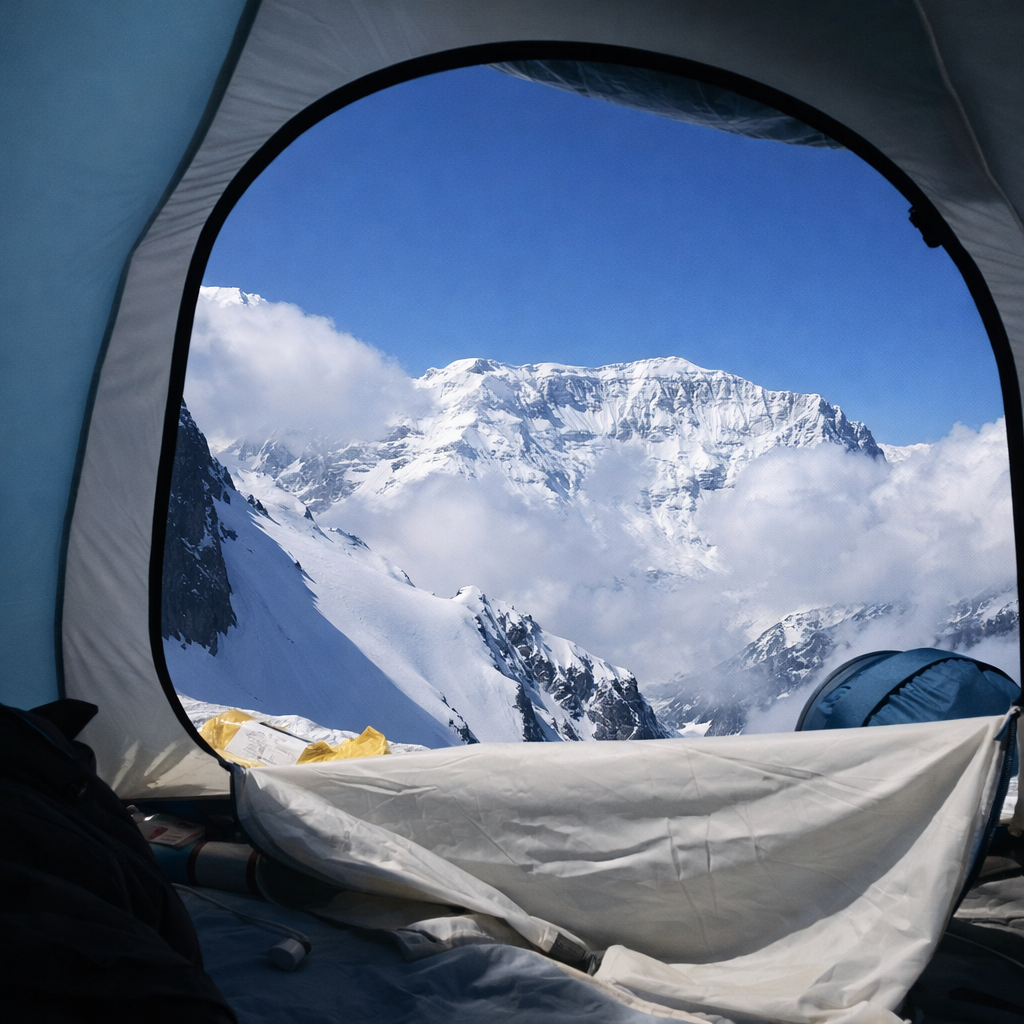Khan-Tengri Peak (7010 m) – Expedition 2026

Khan Tengri Expedition — Key Information
-
Peak: Khan Tengri
-
Elevation: 7010 m
-
Region: Central Tien Shan
-
Country: Kyrgyzstan / Kazakhstan border
-
Route: Classic South Inylchek Route (via Semenov Glacier)
-
Climbing Style: Alpine expedition with fixed ropes on key sections
-
Guiding: No personal guides (independent climbing)
-
Experience Required: Previous ascents above 5000 m
-
Base Camp: South Inylchek Base Camp (4000 m)
-
Highest Camp: Camp 3 (5800 m)
-
Expedition Duration: 21 days
-
Reserve Days: 3
-
Season: July – August
-
Access: Helicopter (Karkyra ↔ South Inylchek)
-
Accommodation: Hotels in Bishkek, tent camps on the mountain
-
Technical Difficulty: High
-
Objective Hazards: Icefalls, avalanches, crevasses, severe weather
-
Terrain: Glacier, icefall, mixed rock & snow, exposed summit ridge
-
Logistics Provider: ClimberCA International Consortium
-
Support Included:
-
Helicopter transfers
-
Established camps
-
Fixed ropes on critical sections
-
Radio communication
-
Medical and logistical support
-
-
Price Range: from 1900 USD
-
Insurance Required: Minimum 30,000 USD (including helicopter evacuation)
Supplier of services: ClimberCA International Consortium. About Us.
https://t.me/ClimberCA – telegram
+7966 065-53-44 – whatsapp/viber
e-mail: your@climberca.com
Note: ClimberCA provides top-quality services at competitive prices. Explore the full range of services on the website—some are truly unique and unmatched on the market.



